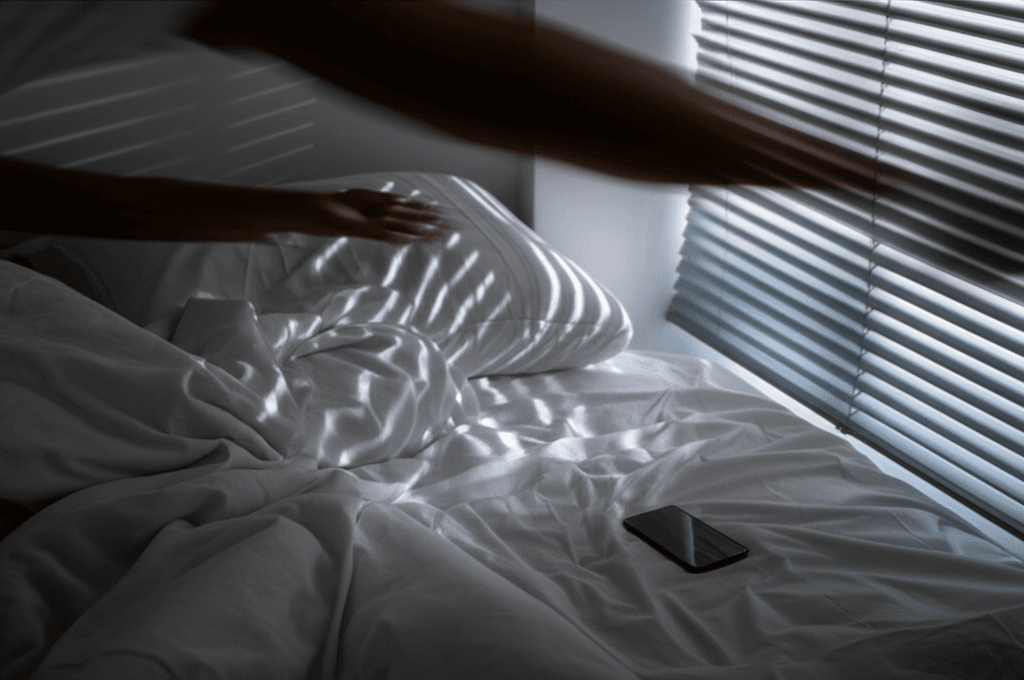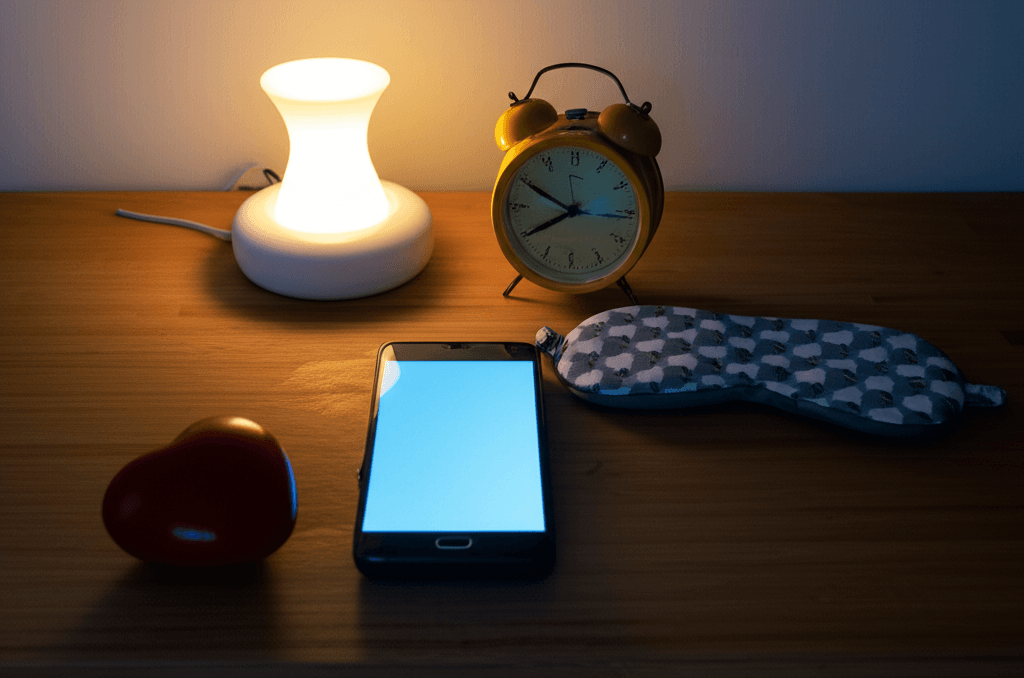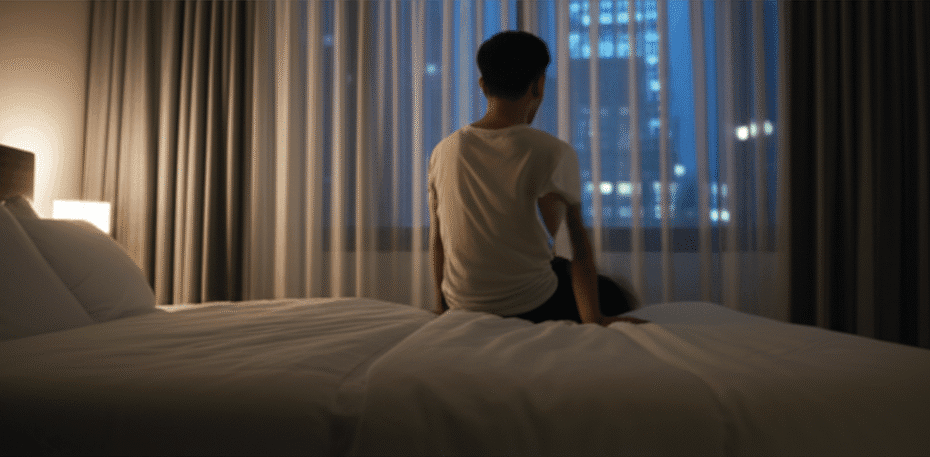Why Darkness at Night Matters
In our modern world, where lights illuminate our nights and screens glow constantly, the sanctuary of a truly dark sleeping environment is becoming increasingly rare. While we often focus on factors like diet and exercise for our well-being, the profound impact of sleep on our overall health, particularly our cardiovascular system, is a topic that merits closer attention. Specifically, the subtle presence of artificial light during those crucial hours of rest can have implications that extend far beyond simply feeling a little tired the next day.
Circadian Rhythm and Melatonin
Our bodies are remarkably attuned to the natural rhythms of day and night, a sophisticated internal clock known as the circadian rhythm. This rhythm dictates numerous physiological processes, including our sleep-wake cycle, hormone production, and even our metabolic rate. A key player in this intricate system is melatonin, often referred to as the 'hormone of darkness.' Its production naturally increases as evening descends, signaling to our bodies that it's time to wind down and prepare for sleep. This natural surge in melatonin is vital for initiating and maintaining restorative sleep.
However, when artificial light intrudes upon our sleep environment, even dimly, it can inadvertently send conflicting signals to our internal clock. Light, especially certain wavelengths like those found in blue light emitted by electronic devices, can suppress melatonin production. This suppression can make it harder to fall asleep, disrupt the quality and depth of our sleep, and potentially shift our circadian rhythm out of sync with its natural timing. Imagine trying to drive a car with the brakes and accelerator being pressed intermittently – that's somewhat akin to what happens when our bodies receive mixed signals about light and darkness during our sleep phase.

Sleep Disruption and the Heart
The consequences of consistently disrupted or poor-quality sleep extend throughout the body, and the cardiovascular system is no exception. While our bodies are resting, they are also engaging in critical repair and recovery processes. Blood pressure naturally dips during sleep, providing a much-needed period of relief for the heart and blood vessels. Heart rate slows, and the entire system gets a chance to recuperate from the day's demands. When sleep is fragmented, too short, or of poor quality due to factors like light exposure, these restorative processes can be compromised.
Over time, a persistent lack of quality sleep has been broadly associated with various health challenges. The body, under constant low-grade stress from insufficient recovery, might experience subtle shifts in its regulatory mechanisms. For instance, processes related to managing inflammation, blood sugar, and stress hormones can be influenced. These physiological changes, while not immediately critical, can contribute to a gradual strain on the cardiovascular system, making it work harder without the adequate rest it needs to maintain optimal function. Therefore, minimizing sleeping with light isn't just about feeling refreshed; it's about supporting the foundational health of your heart and blood vessels.
Cumulative Effects Over Time
Consider the cumulative effect: a night here and there with a nightlight on or streetlights peering through the window might not seem significant. But when this becomes a regular occurrence, the subtle disruption to your body's natural sleep architecture can add up. Our bodies thrive on consistency and predictability, especially regarding the sleep-wake cycle. When this rhythm is repeatedly interrupted by unexpected light cues, the system can become less efficient in its nightly maintenance duties. It's a bit like regularly interrupting a meticulous mechanic mid-repair; the job might eventually get done, but not as smoothly or efficiently, potentially leading to wear and tear over time.

Light Types and Impact
The type of light also plays a role, though all light during sleep is generally suboptimal. Brighter lights are more disruptive, naturally, but even dim ambient light from a digital clock, a charging phone, or an external source can be enough to register with our sensitive photoreceptors and interfere with melatonin release. The spectrum of light matters too; blue light, common in LED lights and electronic screens, is particularly effective at signaling 'daytime' to our brains, making it an especially potent sleep disruptor if encountered before or during sleep.
Practical Steps and Big Picture
So, what practical steps can one take to create a more optimal sleep environment and support cardiovascular health by minimizing sleeping with light? The good news is that many solutions are straightforward and accessible. The primary goal is to make your bedroom as dark as possible. This might involve investing in blackout curtains or blinds that effectively block out all external light.
If these aren't an option, a comfortable eye mask can be a surprisingly effective and affordable alternative. Even small sources of light within the room, such as indicator lights on electronics or charging cables, should be covered or turned away from the bed. Consider removing unnecessary light-emitting devices from the bedroom altogether.
Beyond physical light barriers, developing a consistent evening routine that signals to your body that sleep is approaching can be immensely beneficial. This includes dimming the lights in your home an hour or two before bedtime, avoiding bright screens (phones, tablets, computers, and even bright televisions) in the period leading up to sleep, and engaging in relaxing activities like reading a physical book, listening to calm music, or taking a warm bath. These practices help your body naturally ramp up melatonin production, preparing it for a truly restorative night's sleep.
Furthermore, while focusing on a dark sleep environment is crucial for supporting cardiovascular health, it's also part of a broader picture of overall wellness. A balanced approach that includes regular physical activity, a nutritious diet rich in whole foods, effective stress management techniques, and staying adequately hydrated all contribute synergistically to a healthy heart and circulatory system. Prioritizing quality sleep, free from the intrusion of artificial light, complements these other healthy habits, creating a powerful foundation for long-term vitality and well-being. It's about recognizing that our daily choices, even seemingly small ones like ensuring darkness at night, ripple through our physiology and collectively shape our health trajectory.
Ultimately, making an effort to minimize sleeping with light is a simple yet powerful step towards nurturing your body's natural restorative processes. By creating an optimal sleep sanctuary, you allow your circadian rhythm to function undisturbed, supporting deeper, more consistent sleep. This, in turn, helps your cardiovascular system to perform its essential repair and maintenance, contributing to its long-term health and resilience. Embracing darkness at night isn't just about catching more Z's; it's about giving your heart the quiet, uninterrupted rest it needs to keep beating strongly for years to come, forming an integral part of a holistic approach to living your healthiest life.
Beyond creating a peaceful, dark sanctuary for sleep, supporting your body's internal balance is key to overall vitality. If you’re looking for ways to enhance your daily wellness routine and contribute to a feeling of robust health, consider exploring PrimeBiome. This supplement is designed to support gut and skin health, which are often interconnected with your body’s broader well-being. By nurturing these essential systems, you can take a proactive step in complementing your lifestyle choices, striving for a feeling of improved balance and vitality that ripples through your daily life.
Disclaimer: This post contains affiliate links. We may earn a small commission at no extra cost to you. This helps us keep our blog running.
